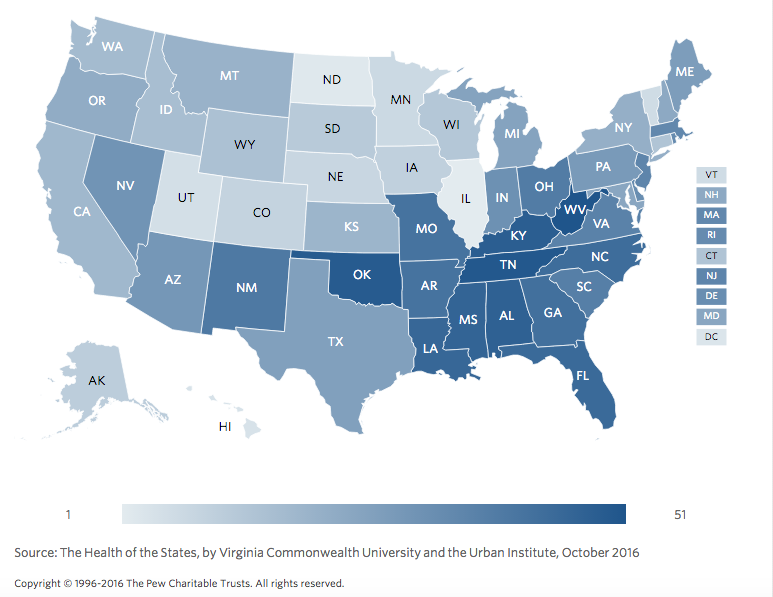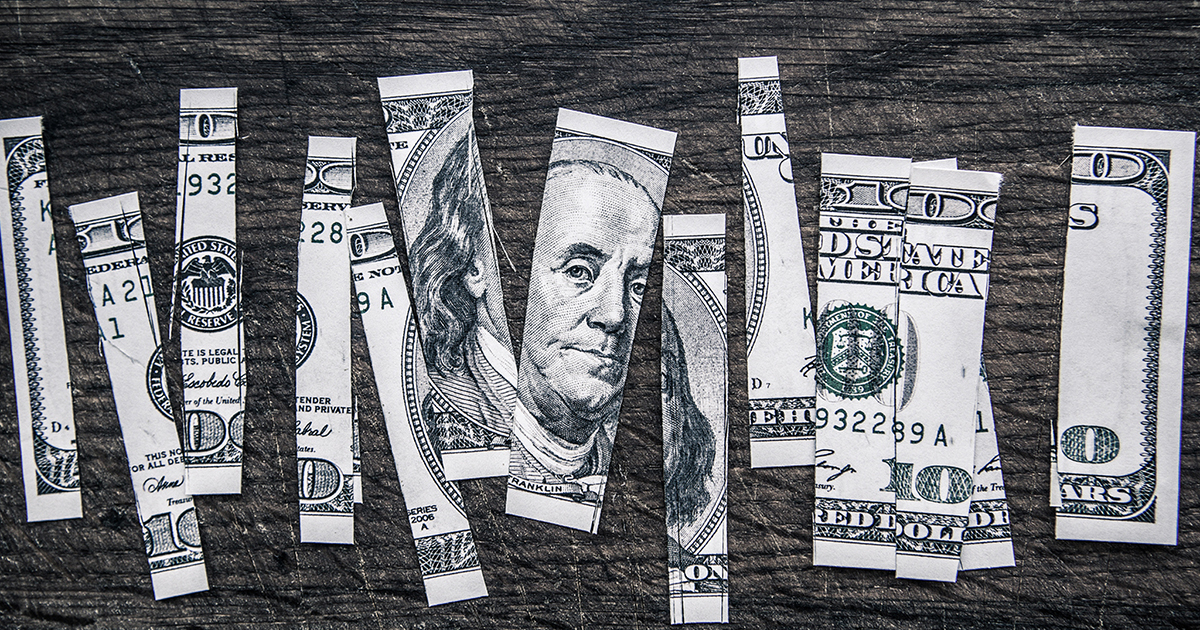These Are the States With the Biggest Mental Health Problems

By:
When it comes to mental health, it's not just all in your head: the state you live in also shapes your mental and physical well being, as noted in a new analysis from the Pew Charitable Trusts.
 Stocksy/Guille Faingold - stocksy.com
Stocksy/Guille Faingold - stocksy.com
“In many ways, your ZIP code is more important than your genetic code when it comes to health,”Jay Butler, Alaska's director of public health, told Pew.
Using data from the Center on Society and Health at Virginia Commonwealth University and the Urban Institute, Pew mapped out the average number of days reported as mentally unhealthy by people across the United States. For the initial report, researchers asked subjects how many days out of 30 they felt mentally unwell (the darker colored states had the highest numbers of mentally unhealthy days).
Where people are feeling blue.
 Pew - pewtrusts.org
Pew - pewtrusts.org
The data links mental well-being to physical activity and time outdoors.
States with the lowest numbers of mentally unhealthy days were those where people can easily access parks, and where neighborhoods provide resources for children to exercise, the researchers observed. People with access to public transportation, and opportunities to bike or walk frequently, also reported low numbers of mentally unhealthy days.
States with high numbers of mentally unhealthy days were largely concentrated in the South and Appalachia.
People reported the highest number of mentally unhealthy days in Tennessee. The state has been hit particularly hard by the opioid epidemic, and reports the second highest rate of opioid prescriptions per person, the Tennessean reports. Heroin use is also on the rise, according to a 2016 report.
 Flickr/ep_jhu - flickr.com
Flickr/ep_jhu - flickr.com
The opioid epidemic is pervasive, hitting many of the states with the highest numbers of mentally unhealthy days. Oklahoma and Kentucky, which earned the second and third lowest scores for mental health, respectively, are both in the top five when it comes to states with the highest drug overdose rates.
Depression and drug addiction are both common in the Appalachian region,
This region include all of West Virginia and parts of Alabama, Georgia, Kentucky, Maryland, Mississippi, New York, North Carolina, Ohio, Pennsylvania, South Carolina, Tennessee, and Virginia. People living in rural parts of the region still struggle to access mental health care and drug/alcohol abuse treatment, according to a 2012 report from the Appalachian Regional Commission.

Drug addiction and mental illness are related to the region's economic stagnation and isolation, Theresa L. Burris noted in a 2014 piece on the American Psychological Association.
From Burris:
"...many central Appalachians struggle with poverty, illness, depression and addiction. It’s important to note that in an area where blue collar jobs dominate among single-industry economies, individuals do get seriously injured and are legitimately prescribed pain medication. And given the depressed economy of the region... it should come as no surprise to find depressed people self-medicating."
Geography as well as poverty can prevent individuals from easily accessing health care providers. In her 2014 book, "Appalachian Mental Health," anthropologist Susan E. Keefe argued that cultural values lead Appalachians to conceal mental illness — as well as physical sickness — rather than seek treatment. Allegations over unethical practices involving a black lung medical program from John Hopkins researchers that was suspended in 2013 may have (rightfully) fueled miners and other Appalachians distrust of medical professionals, Burris noted.
The common thread.
The Urban Institute report links income inequality with mentally unhealthy days. Income inequality is also linked to poor health health overall, as well as childhood obesity and increased risk of sexually transmitted infections.
 Flickr/Tax Credits - flic.kr
Flickr/Tax Credits - flic.kr
As The Washington Post reported this month, most states are failing to increase spending on mental health programs, despite the evidence they're needed. That and dismal economic prospects suggest areas with the greatest mental health problems will continue to top all the wrong lists.
